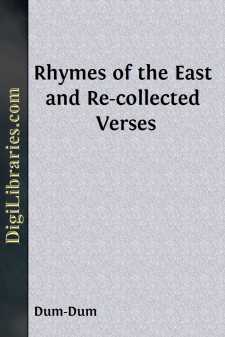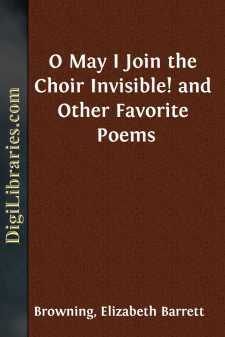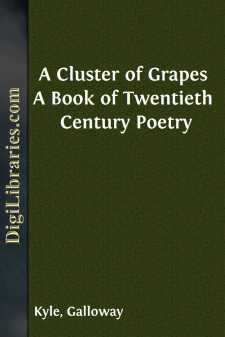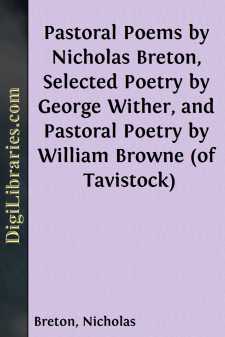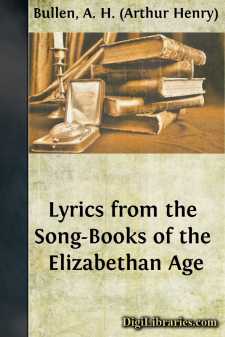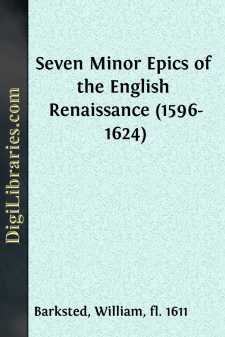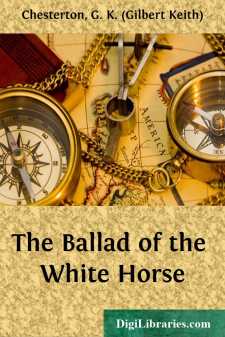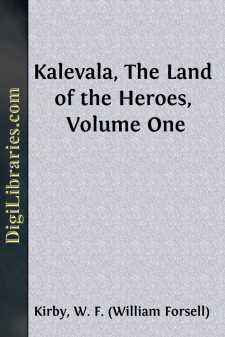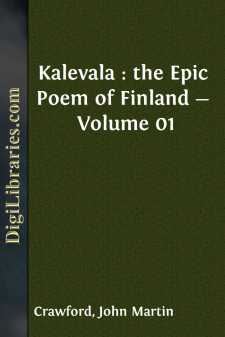Poetry
- American 96
- Ancient, Classical & Medieval 41
- Asian 15
- Australian & Oceanian 11
- Canadian 11
- Caribbean & Latin American 5
- Children's Poetry & Nursery rhymes 51
- Continental European 11
- English, Irish, Scottish, Welsh
- General 483
- Inspirational & Religious 7
- Middle Eastern 3
English, Irish, Scottish, Welsh Books
Sort by:
by:
Dum-Dum
NOCTURNE WRITTEN IN AN INDIAN GARDEN'Where ignorance is bliss,'Tis folly to be wise.'The time-gun rolls his nerve-destroying bray;The toiling moon rides slowly o'er the trees;The weary diners cast their cares away,And seek the lawn for coolness and for ease.Now spreads the gathering stillness like a pall,And melancholy silence rules the scene,Save where the bugler sounds his homing...
more...
O MAY I JOIN THE CHOIR INVISIBLE! O may I join the choir invisibleOf those immortal dead who live againIn minds made better by their presence; liveIn pulses stirred to generosity,In deeds of daring rectitude, in scornOf miserable aims that end with self,In thoughts sublime that pierce the night like stars,And with their mild persistence urge men’s mindsTo vaster issues. So to live is heaven:To...
more...
by:
Galloway Kyle
RECONCILIATION I begin through the grass once again to be bound to the Lord; I can see, through a face that has faded, the face full of rest Of the earth, of the mother, my heart with her heart in accord, As I lie mid the cool green tresses that mantle her breast I begin with the grass once again to be bound to the Lord. By the hand of a child I am led to the throne of the King For a touch that now...
more...
by:
Nicholas Breton
There are few issues attended with greater uncertainty than the fate of a poet, and of the three represented herein it may be said that they survive but tardily in public interest. Such a state of things, in spite of all pleading, is quite beyond reason; hence the purport of this small Anthology is at once obvious. A group of poets graced with rarest charm and linked together by several and varied...
more...
The present Anthology is intended to serve as a companion volume to the Poetical Miscellanies published in England at the close of the sixteenth and the beginning of the seventeenth centuries. A few of the lyrics here collected are, it is true, included in “England’s Helicon,” Davison’s “Poetical Rhapsody,” and “The Phœnix’ Nest”; and some are to be found in the modern collections of...
more...
by:
William Barksted
INTRODUCTION Professor Elizabeth Story Donno, in her recent (New York, 1963), has made an important contribution to both scholarship and teaching. Not only has she brought together for the first time in one volume most of the extant Elizabethan minor epics, but in so doing, she has hastened the recognition that the minor epic, or "epyllion" as it has often been called in modern times,[] is a...
more...
INTRODUCTION. o have attempted in former times a work of this description, would have seemed, we cannot deny, to savour either of presumption or of idiotcy, or more probably of both. And rightly. But we live in times of progress. The mystery of yesterday is the common-place of to-day; the Bible, which was Newton's oracle, is Professor Huxley's jest-book; and students at the University now...
more...
BOOK I. THE VISION OF THE KING Before the gods that made the godsHad seen their sunrise pass,The White Horse of the White Horse ValeWas cut out of the grass. Before the gods that made the godsHad drunk at dawn their fill,The White Horse of the White Horse ValeWas hoary on the hill. Age beyond age on British land,Aeons on aeons gone,Was peace and war in western hills,And the White Horse looked on. For...
more...
INTRODUCTION The Kalevala, or the Land of Heroes, as the word may be freely rendered, is the national epic of Finland, and as that country and its literature are still comparatively little known to English readers, some preliminary explanations are here necessary. On reference to a map of Europe, it will be seen that the north-western portion of the Russian Empire forms almost a peninsula, surrounded,...
more...
The following translation was undertaken from a desire to lay before the English-speaking people the full treasury of epical beauty, folklore, and mythology comprised in The Kalevala, the national epic of the Finns. A brief description of this peculiar people, and of their ethical, linguistic, social, and religious life, seems to be called for here in order that the following poem may be the better...
more...


